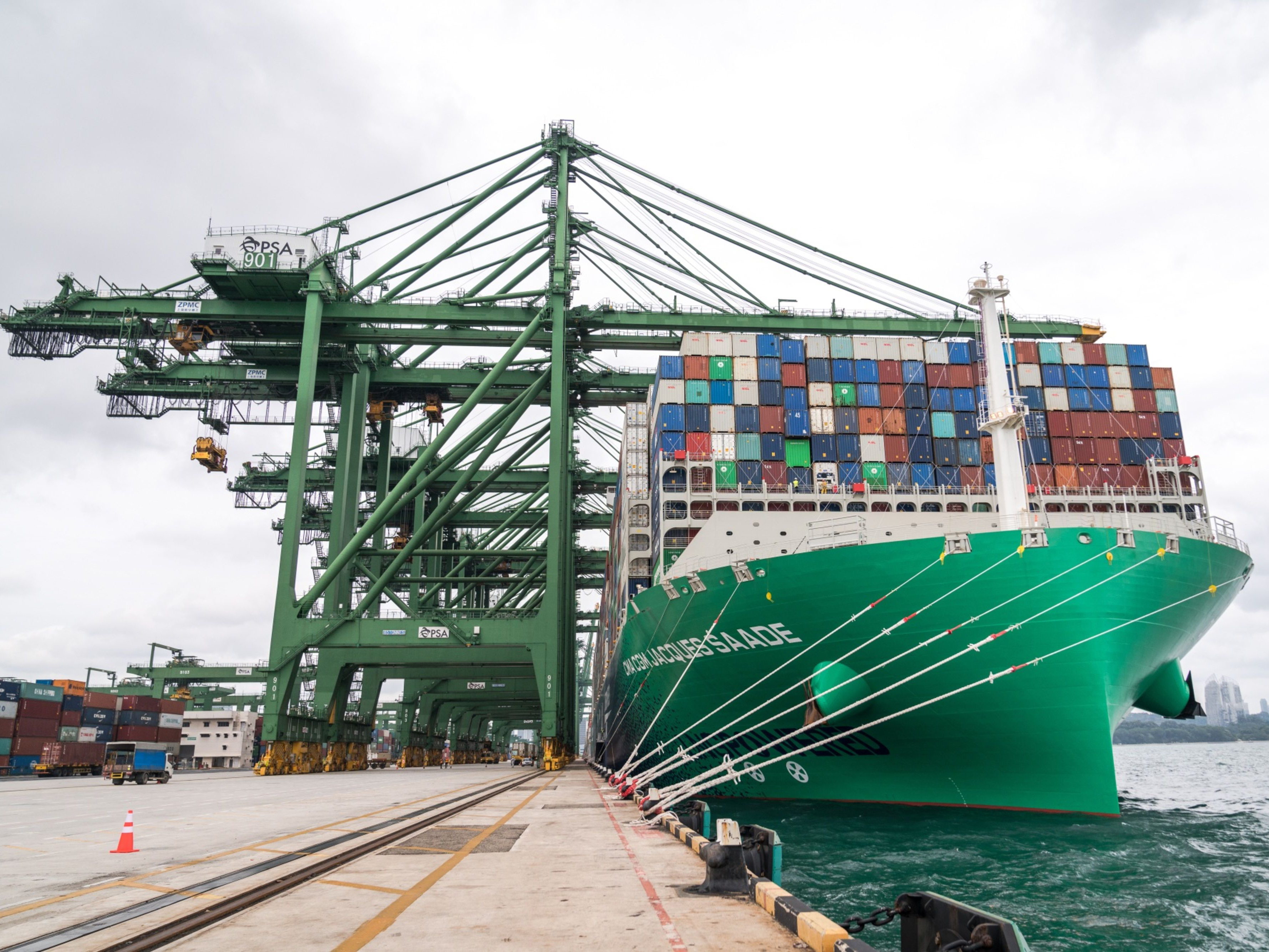
Visit Our Sponsors |
|
|
|
|
|
|
|
|
|
|
|
|
|
|
|
|
|
|
|
|
|
|
|
|
|
|
|
|
|
|
|
|
|
|
|
|
|
|
|
|
|
|
|
|
|
|
|
|
|
|
|
|
|
|
|
|
|
|
|
|
|
|
|
|
|
|
|
|

The race to wean shipping off oil and switch to cleaner fuels should prove lucrative for investors and is drawing interest from fund managers, according to Boston Consulting Group.
Hitting climate targets means shipping has to start using clean marine fuels such as ammonia, methanol and biofuel, the U.S.-based consultancy said. It’s a big transition and requires major spending, creating investment opportunities in, for example, companies that will make the alternative fuels, or into the new infrastructure needed at ports.
“There is lots of money to be made in this transition,” BCG partner Peter Jameson said. “Big investment funds, pension funds, are now looking to how do we actually deploy our funds into these potential growth markets.”
The shipping sector, which handles more than 80% of all traded goods and consumes about 5 million barrels of oil a day, wants to target net-zero carbon emissions by 2050. That means switching to alternatives, and fast. Since ships have a life of about 20 to 25 years, those ordered in the coming years could still be in use by the middle of the century — meaning they should be capable of running on clean fuels, even if supplies don’t yet exist at scale.
Getting shipping to net-zero CO2 requires about $2.4 trillion of investment, and roughly 70% of that will need to be in cleaner fuels, mostly in their production, storage and distribution, BCG estimates. The consultancy has offices in more than 50 countries and regions and says many of its clients rank among the world’s biggest 500 corporations.
Decarbonizing shipping has many challenges, partly because of the thousands of miles vessels often travel to deliver their cargoes, meaning battery-powered carriers aren’t an option for much of the industry.
The consultancy sees clean versions of ammonia and methanol as the best future fuels for long-haul shipping, which makes up most of the sector’s emissions. Batteries are best suited to short-haul journeys, particularly ferries. Green hydrogen, a vital building block for clean versions of ammonia and methanol, should play a key role.
Engine companies like Wartsila Oyj and MAN Energy Solutions SE “can see a new market opening up,” Jameson said. “Then you have hydrogen production itself. The wind and the solar, etc. There are pockets there of money to be made.”
Read more:
When Europe’s Proposed Carbon Rules Hit Oil Guzzling Industries
Shipping Trade Groups Submit Plan for Global Carbon Tax
Maersk’s Green Shipping Plan Runs Up Against Scarce Biofuel
Some big names are already involved. Commodities trader Trafigura Group and fertilizer maker Yara International ASA plan to develop ammonia as a carbon-free shipping fuel. Container line giant A.P. Moller-Maersk A/S has invested in a green-fuel startup backed by Warren Buffett. There are more than 100 zero-emission pilot and demonstration projects, the Getting to Zero Coalition said in March.
For now, shipping’s global regulator has a softer emissions target, aiming for only a 50% cut in total greenhouse gas emissions by 2050. Still, one way or another, the bar for the industry is going to be raised, according to Jameson.
“I firmly believe it will come,” he said.
RELATED CONTENT
RELATED VIDEOS
Timely, incisive articles delivered directly to your inbox.

